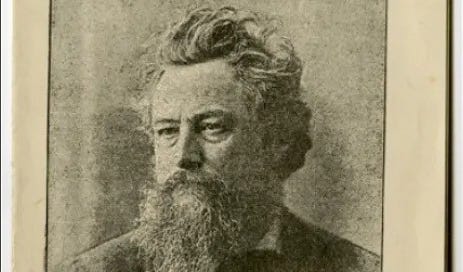Siobhan Hartley reflects on the experiences that helped her reach a socialist conclusion about the issues facing the world. In each edition of The Commonweal we encourage a member to send a contribution on this question.
While I am not well read on socialism, it is glaringly obvious to me that capitalism has been and remains an outstanding dismal failure for the majority of humanity and other life on earth.
Colonialism, imperialism, oppression, marginalisation, injustice, war, environmental degradation and exploitation for the many, wealth and power for the elite few. I was somewhat aware of these facts growing up in a working class Irish family. My father Brian emigrated from the Falls Road, Belfast, Northern Ireland in 1963. My mother Bernadette grew up in Addington, Christchurch. I eventually understood that my father came from a place of political struggle and war and while political discussion was limited when I was a child, I have clear memories of social justice being an important value to our family.
Dad had been a rugby player, so it was interesting to me when in the winter of 1981 there was much national discussion about the tour of the Springboks. When I asked my parents about this they encouraged me to read about South Africa and to make my own decision. I decided that I was vehemently opposed to apartheid and the Springbok tour and so embarked on my first political protest. The rallies and marches introduced me to the powerful voice of an organised collective.
In 1982, aged 15, I took the opportunity to travel to Northern Ireland and live with my Dad’s family for a year. I lived with my uncle, who was a member of Sinn Féin. Whilst there I was exposed to much political debate, listened to the singing of Fenian songs in the clubs, and experienced life under an occupying military force. I connected with my heritage and my family’s participation in the struggle for a socialist united Ireland. In all of this my old Granny Hilda was the most influential. I spent many happy days listening to her oral history of family and the occupied six counties of Ulster.
Fast forward to the late 90s and back in New Zealand after 10 years in Sydney, married and with 3 young children, I enrolled at Canterbury University. Anthropology 101 was one of the three papers I completed and it opened my mind to the many diverse ways societies are organised.
After some years as a single parent struggling on the benefit and part-time work, I returned to full-time employment the same year Sionainn [my eldest daughter] started university. I have always been a member of a union and noticed the precarious position of employees that were not. My three young adult children were now in jobs where union membership appeared not to be encouraged, and where conditions were questionable. We had many discussions on this and other political issues and I have been informed and educated by their experiences.
In 2014 I became a union delegate and since then I have been on our wage negotiation bargaining team and participated in workplace complaint processes. In my experience workers are regularly micromanaged, undermined, and undervalued.
So for me, Socialism is the only rational and positive solution to worker’s rights, the self- determination of colonised and marginalised peoples, nonhuman and environmental protection, and the unequal distribution of wealth in our world.
In solidarity
Siobhan




Hi Siobhan. What a lovely story. And yes, I remember ‘81.
In particular, I admire your working for others from within a union. I am on the right myself - an ACT voter, so we would likely differ on what good solutions look like, but I note your commitment and I see your passion.
We need strong unions and we need strong advocates for vulnerable workers. Union friends of mine bust a gut to do what they do, and their stories would make your hair stand on end. Well, probably not yours.
Anyway, I appreciate what you do. Onya!
John
This is a well-written piece Siobhan and I understand where you're coming from. But I think you gravely underestimate the strength and conviction of Unionism in Northern Ireland. This has been the case since the 1880s when Liberals understandably thought that Home Rule didn't mark the end of the world and believed the Ulster Protestants should get over it. The passion for unification is strongest in Catholic (London)derry. The further you get from the border, the less interested the Irish themselves are in unification. If NI has a referendum for unification and it's lost (highly likely) what would you say then? The best arguments for unification are prosperity and secularisation in Ireland, and ossified, bigoted, homophobic Brexiting DUP types in NI alienating smarter younger people. Let's hope support for the DUP will wear down, but like the achievement of peace in the late 90s, it will take a good while yet.